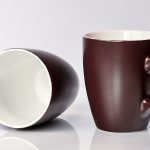A 1-800 number can be registered as a trademark so long as it functions as a trademark and is not merely descriptive of the goods or services with which it is associated.
Got it?
If not, or if you aren’t sure what that sentence means, this is to be expected. It’s stuffed with loaded legal terminology that simply appears to be plain English but actually isn’t.
This Article will dissect this statement to discuss when a 1-800 Number can be registered as a trademark—and what some of the pitfalls of attempting to register such a trademark or service mark may be.
To start, let’s quickly review what the legal purpose of a trademark actually is.
1-800 Numbers & Other Trademarks Are Source-Identifiers
Under the US Trademark Act (“the Lanham Act”), a trademark is defined as any word, name, symbol, or device (or any combination of these things) that is …
- Used by a person, or …
- Which a person has a bona fide intention to use in commerce …
… to identify and distinguish his or her goods (or services, in the case of a service mark) from those sold by others and to indicate the source of the good (or service).
That is, a trademark (and this Article will conflate the terms “trademark” and “service mark” under this umbrella for ease of reading) is a unique word, term, or logo that specifically identifies you as the source of the product or service you are selling in interstate commerce.
Unlike copyright or patent registration, which are aimed at protecting your own creation for your profit and exploitation, the legislative purpose of trademark protection is outward-facing.
Its purpose is to ensure that consumers perceiving your mark used in association with a product or service for sale across state lines in the US understands who is selling (or providing, if not profit-oriented) that product or service.
When you buy a can of Coke at a convenience store, you, as consumer, want the assurance of knowing that it was canned or bottled by the Coca Cola Company of Atlanta, Georgia and not some guy in Livonia, Michigan with a barrel of brown fluid in his garage.
The US Government wants consumers in the US to have that assurance as well. This is the aim of US trademark registration.
Thus, any proposed trademark will fail to be registered as such by the US Patent and Trademark Office (USPTO) if it is not unique enough to specifically identify you as the source of your product or service.
The USPTO will also refuse to register any word, name, term, or logo that does not “function” as a trademark.
So how do these potential issues arise with regard to 1-800 numbers used as trademarks?
1-800 Numbers Must Not Fail to Function as Trademarks
We have discussed failure to function trademark registration application refusals in an earlier Article on our trademark blog, here.
However, to frame this requirement in the context of this Article, a 1-800 Number or “vanity number” can be registered as a trademark so long as it is source-identifying and does not simply indicate a means of contacting the owner by telephone.
If a 1-800 Number simply communicates a method of tele-communications without doing more, it is not function as a trademark. It is simply conveying meat-and-potatoes contact information, no differently than does a business address displayed on a website.
The 1-800 Number cannot be “purely informational,” in other words.
When a mark is purely informational (or decorative or “ornamental”), it fails to function as a trademark and cannot be registered as such.
How does the USPTO make the distinction between a purely informational 1-800 Number or vanity number and one that is source-identifying?
In a recent case, the Trademark Trial and Appellate Board (TTAB) overruled an Examiner’s refusal to register on this basis by reviewing the manner in which the 1-800 Number was utilized in the applicant’s Specimens. (Note: “Specimens” are the evidence of use in commerce attached to a trademark registration application.)
The TTAB reviewed the use of the 1-800 Number in the applicant’s Specimen with an eye toward how the mark would be perceived by consumers, in particular.
In this case, the vanity number in question did, the Board decided, identify the applicant as a source of its products. It looked at the size and placement of the 1-800 Number wording in advertising brochures and on the applicant’s website. The Board noted that the 1-800 vanity number appeared apart from the other, informational advertising matter on the brochures, alongside other of the applicant’s registered trademarks (logo, etc.). It included the actual phone-number of the business underneath the 1-800 Number, which the Board found set off the vanity number from the purely informational version of the number.
And so on.
In short, the Board found that the 1-800 Number in this case did function as a trademark for a variety of reasons very particular to this specific applicant—and this specific use.
The analysis of 1-800 Numbers, vanity numbers, or other “mnemonic” proposed trademarks is going to differ based on the facts on the ground, each time.
It is perhaps also worth noting that the TTAB decision discussed above is non-precedential, meaning that it cannot be cited in a response to a future USPTO Office Action refusal premised on a 1-800 Number’s alleged failure to function.
Further, even when the 1-800 Number does “function as a trademark,” it can still be refused as merely descriptive like any other proposed trademark.
1-800 Numbers Must Not Be Merely Descriptive
Any US trademark registration application is subject to refusal if it is not sufficiently unique to identify you as the source of the goods or services associated with the mark.
This is not an analysis specific to 1-800 Numbers, vanity numbers, or other mnemonic marks.
Descriptiveness refusals have also been the subject of one of our previous Trademark Blog articles (located here).
In short, however, a word mark (including 1-800 Numbers or vanity numbers) that “merely describes” the product or services with which it is associated rather than adding “something more” to the mix will be refused as merely descriptive.
For example, a company located in the City of Detroit, Michigan manufacturing and selling hammers will have a difficult time registering the name DETROIT HAMMER COMPANY as a US trademark.
This is a salient example for southeastern Michigan as many “hip” enterprises have in the past few years formed or are forming now using the formulation “DETROIT [PRODUCT OR SERVICE] COMPANY.”
While this appellation may lend a young business a sort of hipster, old-timey vibe of the sort running rampant in Ferndale, Corktown, Midtown, and in the Cass Corridor in particular, this is a recipe for an unregistrable and unprotectable brand.
You cannot register a geographic term or name as a trademark (“Detroit”), for starters. The word “Company” is generic and unregistrable, as well.
This leaves only the middle portion of the formula—the product or service itself—as potentially registrable as a trademark. And it isn’t.
This is true for hammer companies, barber shops, cookie companies, lettuce wraps, bon bons, beer, and whatever else Motown is generating at the moment—and it’s true for 1-800 Numbers as well.
1-800-HAMMERS would potentially be alleged to be merely descriptive for a hammer company, given all of this.
It’s going to need something else to step over the dozens of corpses of the 1-800 Number trademark registration applications that have been refused as merely descriptive to survive the USPTO application process.
Alternatively, if the 1-800 Number has been in use as a source identifier for long enough, you may be able to argue that it has acquired distinctiveness in the minds of consumers and is, therefore, registrable as a trademark.
But you can expect to have to make that argument.
1-800 Numbers as Trademarks: The Bottom Line
The bottom line is that, if you are seeking to register a 1-800 Number as a US trademark, your best chance of success is to work with a Michigan trademark attorney familiar with the requirements of such registrations.
Noble Path Trademark Law is a boutique US law practice located in Metro Detroit and assisting entrepreneurs, solo-preneurs, start-ups, artists, musicians, and larger scale enterprises in all industries with trademark registration, trademark renewal, trademark monitoring, and Office Action refusal response matters.
We offer virtual consultations, premium customer service, and the expertise you need to maximize your odds of trademark registration success.
Click the “Register Your Trademark” button below to schedule your initial consultation and to begin your brand protection journey.





